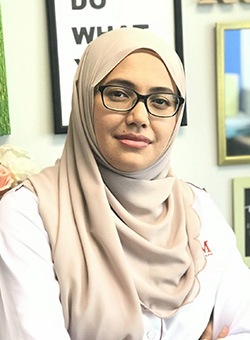MGMTENTR2025演讲嘉宾信息如下:
 Dr. Rossilah Jamil, Associate Professor
Dr. Rossilah Jamil, Associate Professor
Dr. Rossilah Jamil, Associate Professor
Azman Hashim International Business School, University Technology Malaysia, Kuala Lumpur, Malaysia
Biography: Dr. Rossilah Jamil is Associate Professor at Azman Hashim International Business School, Universiti Teknologi Malaysia (UTM). She holds PhD in Development Policy (University of Manchester), MA in Training and HRD (University of Warwick), and BBA (Hons) HRM (UiTM, Malaysia). Her works circle around the areas of HRM, HRD, and sustainable HR-related subjects. She has written to various peer-reviewed publications, and authored books on ‘Training Needs Analysis’ and ‘Teaching Through Cases’. Her articles have appeared in Sage Open, Journal of Enabling Technologies, Sustainability, Industrial and Commercial Training, Journal of Academic Ethics, Asian Journal of Management Cases, and International Journal of Management Education. Her present research interests relate to sustainable HRM topics focusing on marginal workers such as neurodivergent and gig / non-traditional workers. She is a registered trainer with the HRD Corp to clients from Malaysia and overseas. Dr. Rossilah was involved in developing Malaysia’s first training index, and gig platform companies’ index.
Topic: Sustainable Human Resource Management Through Neurodiversity Employment
Abstract: Sustainable Human Resource Management (SHRM) has been gaining popularity with more companies integrating its practices to comply with global frameworks. SHRM focuses on balancing organisational triple bottom line goals to emphasize ethical labour practices, employee well-being, and environmentally responsible policies. By prioritising sustainability, organisations can enhance their reputation, attract socially conscious talent, and contribute to a more resilient business environment. One of SHRM’s key areas is on the diversity and inclusion (D&I) initiatives to create ethical and people-centred workplaces. Using neurodiversity employment, this speech explains how this initiative illustrates SHRM to foster a sustainable workforce that aims for organisational and societal good. Neurodiversity programs create inclusive workplaces for individuals with neurodivergent conditions like autism, ADHD, and dyslexia through tailored hiring processes, workplace accommodations, and specialised support to allow them thrive and grow in their careers. This speech shares examples of neurodiversity programs implemented by global companies, including empirical-based cases from Malaysia. Key commonalities and best practices of these programs will be discussed that require a revisit of traditional HRM. The speaker connects the programs’ alignment to important indicators and metrics under the UN Sustainable Development Goals (SDGs). Further, challenges and prospects of the neurodiversity employment programs are highlighted in relation to organizational D&I initiatives and SHRM. The speech aims to encourage a discourse on the potentials of neurodiversity programs for organisations and governments to enhance their roles in building sustainable workplaces that support neurodivergent employees while advancing the broader SDG agenda.





